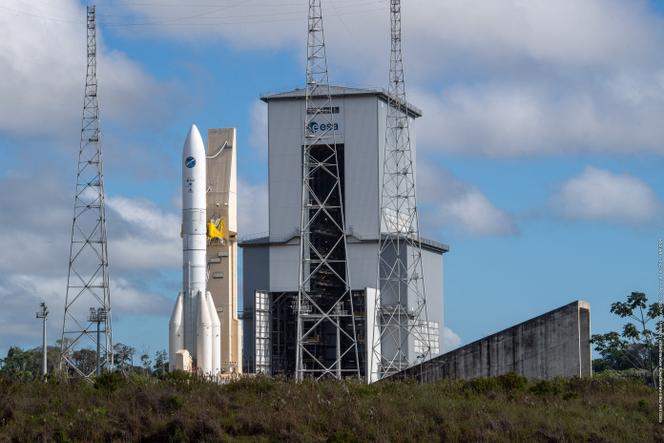


The purpose of this audit was to get Ariane-6 out of the crisis. At the meeting in Seville on Monday, November 6, the 22 member states of the European Space Agency (ESA) reached an agreement to ensure the operation of the future launcher. The agreement was subject to conditions, as the first step is to limit public funding to a maximum of €340 million per year for three years from 2026.
France, the principal sponsor for the ESA program, will contribute 55.3%, followed by Germany (21%) and Italy (7.6%), with the remainder divided between the 10 other countries participating in the project. To achieve this, the manufacturers involved – mainly France’s ArianeGroup, Germany’s MT Aerospace and Italy’s Avio – were asked to reduce their costs by 11%. An audit was underway to achieve this. The aim was even to reduce public funding to below €300 million over the years.
This financial commitment guaranteed 27 Ariane-6 launches between 2026 and 2028. What’s more, France, Germany and Italy decided to go beyond these three years, adding a further 18 months and committing to a further 15 launches, for a total of 42 launches between now and 2030. "This guarantees the solidity of the Ariane-6 business model for the next decade," said the Paris-based company.
Reaching an agreement was a prerequisite for France to make progress on other issues, in the face of Germany, which for two years had been contesting the management of the project and calling for the launcher market to be opened up to competition. France was all the more insistent in view of the fact that, after the €4 billion invested in Ariane-6 for its development, the operating phase after the 16th launch in 2026 was initially scheduled to be self-financing. This has not happened, however, due to the sharp rise in raw material prices and the return of inflation since the war in Ukraine.
"The priority is to get Ariane-6 to its maiden flight as quickly as possible, and to get Vega-C back on track," insisted ESA Director General Josef Aschbacher, the imperative for Europe being to regain autonomous access to space as quickly as possible, something it has lost in recent months. Both Ariane-6 (launched four years late) and the small Italian rocket Vega-C will have to wait until 2024.
In return for continued support for Ariane-6, an agreement was reached to open up the European launcher market to competition, in a space market destabilized over the last ten years by the arrival of Elon Musk with Space X.
You have 40% of this article left to read. The rest is for subscribers only.
